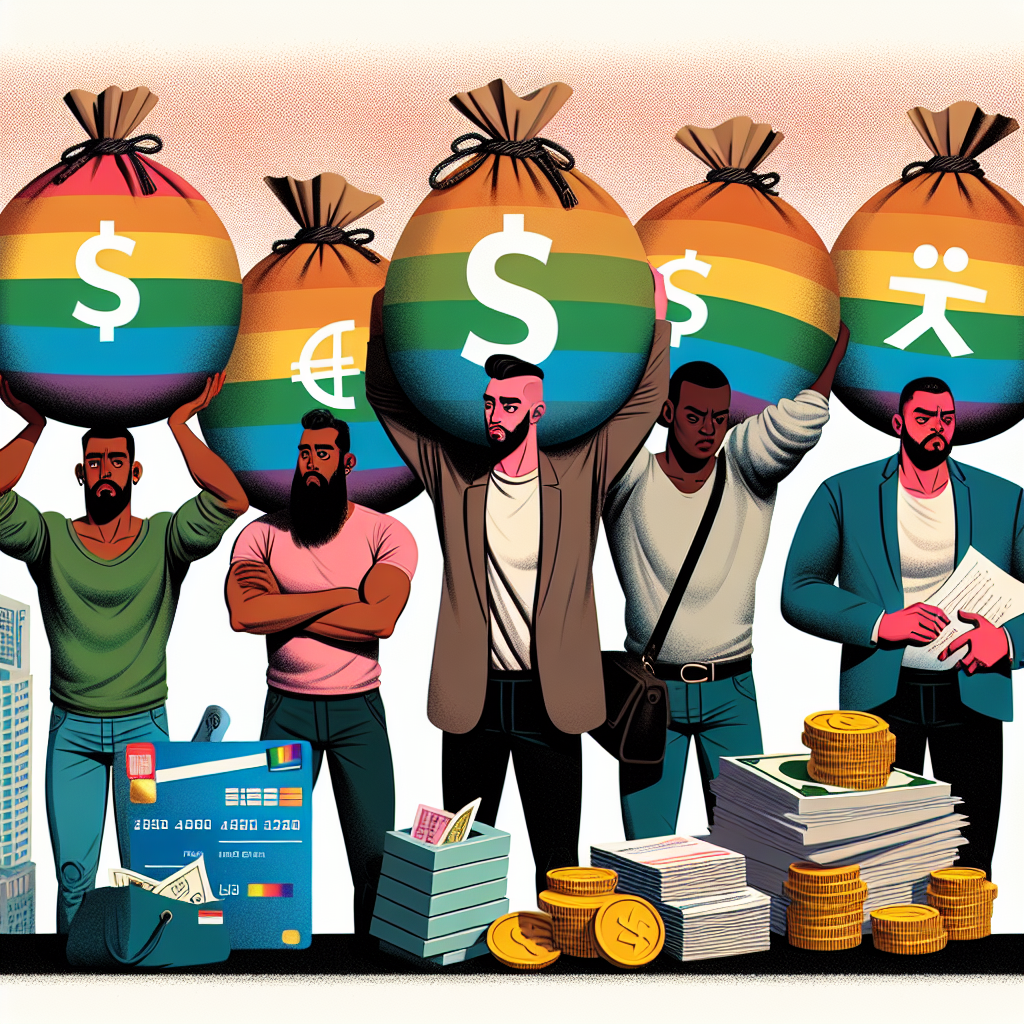The LGBTQ+ community continues to face a unique set of challenges in today’s society, and one of the most significant issues is the high cost of living for gay men. Financial pressures and economic disparities have a profound impact on the well-being and quality of life for gay men, and it is important to understand the various factors that contribute to these challenges.
One of the primary reasons for the high cost of living for gay men is the ongoing discrimination and inequality they face in the workplace. Studies have shown that gay men are more likely to experience workplace discrimination, including being passed over for promotions, receiving lower salaries, and facing higher rates of unemployment. This systemic inequality not only has a direct financial impact but also contributes to a sense of insecurity and instability in the LGBTQ+ community.
Additionally, the LGBTQ+ community disproportionately experiences higher rates of homelessness and housing insecurity, which can be attributed to a lack of legal protections and discrimination in the housing market. Many gay men face significant barriers when attempting to secure safe and affordable housing, leading to increased financial burdens and a higher cost of living.
Healthcare costs are another significant factor contributing to the high cost of living for gay men. LGBTQ+ individuals often face greater health disparities and higher rates of mental health issues, which can result in increased medical expenses. Furthermore, the lack of inclusive health insurance policies and discrimination from healthcare providers can make accessing affordable and comprehensive healthcare even more challenging for gay men.
The impact of these financial pressures is far-reaching and can have profound implications on the overall well-being of gay men. Studies have shown that LGBTQ+ individuals are more likely to experience stress, anxiety, and depression related to financial insecurity, which can have detrimental effects on their physical and mental health.
In response to these challenges, it is crucial for policymakers and advocates to address the unique financial needs of the LGBTQ+ community. This includes implementing and enforcing anti-discrimination policies in the workplace, expanding access to affordable housing, and ensuring that LGBTQ+ individuals have equal access to comprehensive healthcare coverage.
Moreover, there is a need for greater representation and visibility of LGBTQ+ individuals in financial and economic discussions. By elevating the voices and experiences of gay men and other members of the LGBTQ+ community, we can work towards creating more inclusive and equitable financial systems that address their specific needs and challenges.
Ultimately, the high cost of living for gay men is a systemic issue that requires comprehensive and intersectional solutions. By understanding and addressing the various factors that contribute to financial pressures within the LGBTQ+ community, we can work towards creating a more just and equitable society for all.
